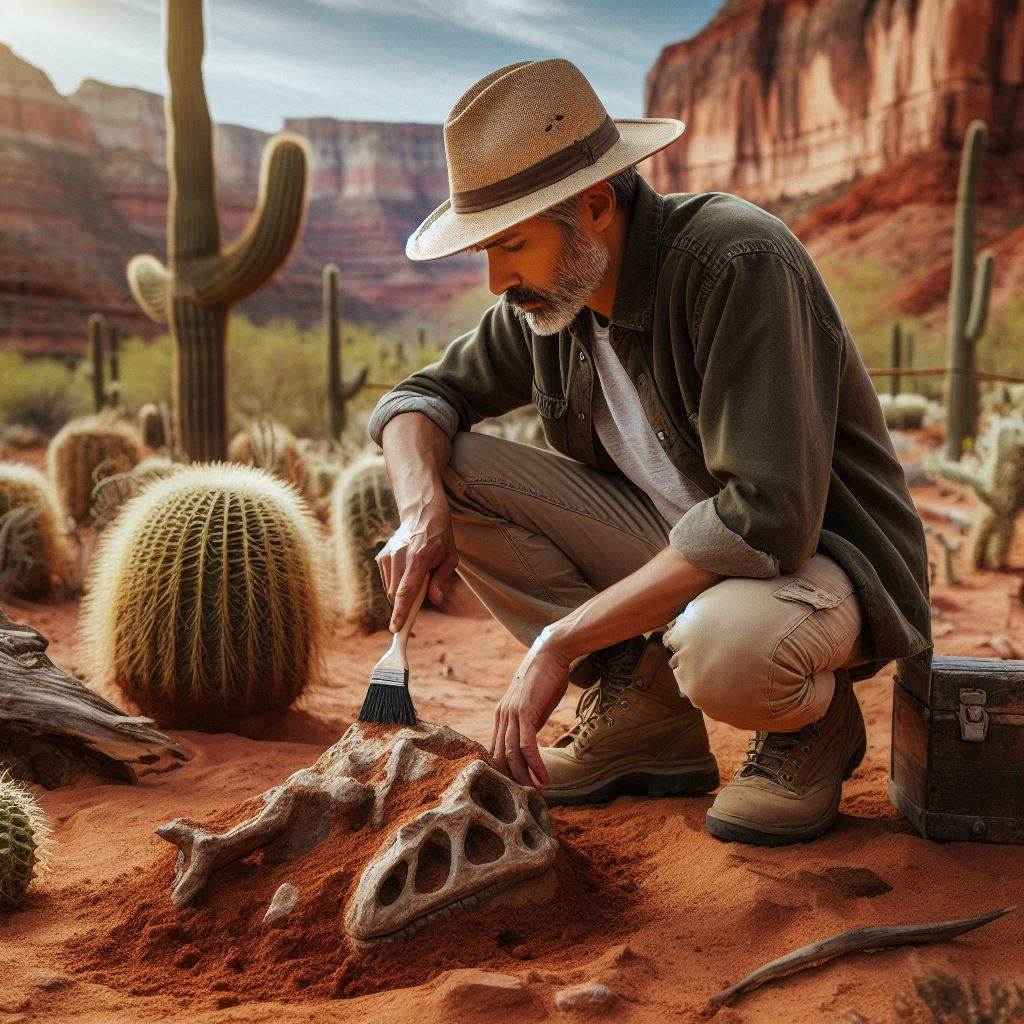Introduction
Ecology is the study of relationships between living organisms and their environments, encompassing a wide range of topics.
In the USA, this field plays a critical role in understanding the intricate interactions within ecosystems.
Ecologists examine how organisms interact with each other and their surroundings, studying everything from individual species to entire ecosystems.
Their research helps us comprehend biodiversity, ecosystem dynamics, and the impact of human activities on the environment.
The importance of professional ecologists in environmental conservation and sustainability cannot be overstated.
They assess ecosystems to determine their health and resilience, providing valuable insights into how ecosystems function.
This assessment is crucial for identifying areas that need protection or restoration.
Ecologists develop conservation strategies that aim to protect endangered species and their habitats, ensuring the survival of biodiversity.
By conducting field studies and collecting data, they provide evidence to support conservation efforts.
Moreover, professional ecologists play a vital role in developing management plans for restoring degraded environments.
Their expertise allows them to identify the best approaches to rehabilitate ecosystems impacted by human activities, such as urbanization or industrialization.
This restoration work helps revive ecosystems, promoting biodiversity and ecological balance.
Ecologists also contribute significantly to policy-making by providing scientific data that informs legislation and regulations.
Research and Education
Pursue a Bachelor’s Degree in Ecology, Biology, or Related Field
Becoming a professional ecologist in the USA requires a clear educational path and practical experience.
The first step is pursuing a bachelor’s degree in ecology, biology, or a related field.
This foundational degree provides essential knowledge about ecosystems, species interactions, and environmental processes.
Courses typically include subjects such as environmental science, botany, zoology, and statistics.
Engaging in laboratory and fieldwork enhances understanding and hones practical skills.
During your undergraduate studies, it is beneficial to get involved in research projects.
Participating in research enhances learning and exposes you to various ecological topics.
Collaborating with faculty members can lead to valuable mentorship opportunities.
Moreover, these experiences bolster your resume and improve your graduate school applications.
Consider joining student organizations related to ecology to network with peers.
These connections can open doors to internships and job opportunities.
Consider Obtaining a Master’s or Ph.D. for Advanced Opportunities
After earning a bachelor’s degree, consider obtaining a master’s or Ph.D.for advanced opportunities in ecology.
A master‘s degree offers specialized knowledge and enhances research skills.
Many employers seek candidates with advanced degrees for research positions or management roles.
A Ph.D. is essential for those who aspire to conduct independent research or teach at the university level.
Graduate programs often involve rigorous coursework, fieldwork, and original research.
While pursuing advanced degrees, seek internships or research assistant positions to gain practical experience.
Internships provide valuable exposure to real-world ecological work.
They allow you to apply theoretical knowledge in practical settings, enhancing your skill set.
Many organizations, such as government agencies and non-profits, offer internships in various ecological fields.
Additionally, research assistant positions allow you to work alongside experienced ecologists.
This collaboration provides insight into research methodologies and project management.
Gain Experience Through Internships or Research Assistant Positions
Consider volunteering for conservation organizations or environmental NGOs.
These experiences enrich your understanding of ecological issues and enhance your resume.
Volunteering demonstrates your commitment to the field and helps build a professional network.
Attend ecology conferences and workshops to meet professionals in the field.
Networking can lead to job opportunities and collaborations.
After gaining sufficient education and experience, you can apply for entry-level positions in ecology.
Look for roles in environmental consulting, wildlife management, or research organizations.
As you gain experience, you can advance to higher-level positions, including project manager or research director.
Continuous professional development is essential.
Pursue certifications or attend workshops to stay updated on ecological trends and methodologies.
Basically, becoming a professional ecologist in the USA involves a structured educational path and hands-on experience.
Start by pursuing a relevant bachelor’s degree and consider advanced education for specialized roles.
Gain practical experience through internships, research positions, and volunteer opportunities.
By following these steps, you can successfully navigate your path to a fulfilling career in ecology.
Read: Continuous Learning: Post-graduate Options for US Biologists
Specialization
Choose a Specific Area of Ecology to Focus On
Choosing a specific area of ecology is crucial for your career.
Consider options such as marine, wildlife, or conservation ecology.
Each specialization offers unique challenges and opportunities.
Think about your interests and strengths when making your choice.
A focused area allows you to deepen your expertise and enhance your skills.
Research various ecological fields to identify what resonates with you.
For example, if you love the ocean, marine ecology might be ideal.
If you are passionate about protecting wildlife, consider wildlife ecology.
Your focus area will shape your educational and career path.
Take Courses and Participate in Workshops Related to Your Specialization
Once you select your area, pursue relevant coursework.
Many universities offer specialized programs in various ecological fields.
Choose courses that align with your focus area.
Courses in biology, environmental science, and ecology are fundamental.
Additionally, consider classes that emphasize fieldwork and data analysis.
Participating in workshops further enriches your knowledge.
Workshops often cover current trends and techniques in your specialization.
They provide hands-on experience and practical skills.
Look for workshops organized by universities, conservation groups, or professional societies.
Online courses also offer flexibility and accessibility.
Many reputable institutions provide online classes tailored to ecology.
These options allow you to learn at your own pace while maintaining other commitments.
Engaging in field studies is also beneficial.
Fieldwork helps you gain practical experience in your chosen area.
It allows you to apply theoretical knowledge to real-world situations.
Seek internships or volunteer opportunities that focus on your specialization.
Network with Professionals in Your Chosen Field
Networking is essential for building a successful career in ecology.
Attend conferences, seminars, and workshops related to your field.
These events provide excellent opportunities to meet professionals.
Engaging with experts can lead to mentorship and job opportunities.
Consider joining professional organizations that focus on your area of ecology.
Membership offers access to resources and networking events.
These organizations often host conferences and forums where members share their research and experiences.
Social media platforms, particularly LinkedIn, can help you connect with professionals.
Engage with posts, join relevant groups, and participate in discussions.
This online presence can enhance your visibility in the ecological community.
Additionally, reach out to your professors and classmates.
They often have valuable connections and insights into the field.
Informational interviews can also provide valuable perspectives on career paths.
Volunteering for conservation projects or research initiatives can expand your network.
Working alongside established professionals can open doors for future opportunities.
These connections can lead to internships, research positions, or job offers.
Read: US Chemistry Conferences and Symposiums to Attend in 2024
Certifications and Licenses
Consider Obtaining Certifications Such as Certified Ecologist or Professional Wetland Scientist
Becoming a professional ecologist in the USA often involves obtaining certifications.
The Certified Ecologist designation demonstrates a solid understanding of ecological principles.
This certification showcases your commitment to the field and enhances your job prospects.
To earn this certification, you must meet specific educational and professional requirements.
Generally, a degree in ecology or a related field is essential.
Additionally, you must demonstrate relevant work experience, usually around three years.
After fulfilling these requirements, you can pass an exam to become certified.
Another valuable certification is the Professional Wetland Scientist (PWS).
This certification focuses on wetland ecology and management.
It signifies your expertise in wetland assessment, restoration, and regulation.
Like the Certified Ecologist, it requires a degree and relevant experience.
Obtaining these certifications can set you apart in a competitive job market.
Some States May Require Licensing for Certain Roles in Ecology
In addition to certifications, some states require licensing for specific ecology roles.
Licensing ensures that ecologists meet professional standards and practice ethically.
Requirements for licensing can vary significantly by state.
Therefore, it‘s essential to research your state’s regulations before pursuing a career in ecology.
For example, states may require a license for roles involving environmental impact assessments or wildlife management.
Professionals working in these areas must demonstrate proficiency in ecological practices and regulations.
Ensuring compliance with state laws protects both the environment and public interests.
Stay Up to Date on Continuing Education Requirements
Continuing education is crucial for maintaining certifications and licenses in ecology.
Many professional organizations require ecologists to complete ongoing training to stay current with scientific advancements.
This requirement ensures that you remain knowledgeable about new methodologies and ecological research.
You can fulfill continuing education requirements through various avenues.
Attending workshops, seminars, and conferences offers excellent opportunities to learn.
Many professional organizations also provide online courses that cover relevant topics.
By participating in these programs, you can enhance your skills and knowledge in ecology.
Additionally, networking with other professionals can facilitate learning opportunities.
Engaging with colleagues at events can help you discover new resources.
Staying connected with the ecology community also allows you to share experiences and insights.
In review, becoming a professional ecologist in the USA involves several steps.
Obtaining certifications like Certified Ecologist or Professional Wetland Scientist enhances your credentials.
Researching state-specific licensing requirements is essential for certain roles.
Furthermore, staying up to date on continuing education requirements ensures that you remain competitive and knowledgeable in the field.
By following these steps, you can build a successful career as a professional ecologist.
Read: Key Roles and Responsibilities of a Chemist in the US

Gain Practical Experience
Practical experience is essential for becoming a professional ecologist in the USA.
By gaining hands-on experience in the field, you will develop valuable skills and knowledge that will set you apart from other candidates.
Work in Entry-Level Roles
One of the best ways to gain practical experience in ecology is to work in entry-level roles, such as a field technician or research assistant.
These positions will allow you to get a firsthand look at the daily tasks and responsibilities of ecologists.
As a field technician, you may be responsible for collecting data, conducting surveys, and monitoring wildlife populations.
This hands-on experience will help you develop important fieldwork skills that are essential for a career in ecology.
Similarly, working as a research assistant will give you the opportunity to collaborate with experienced ecologists on research projects.
You will learn how to design and conduct experiments, analyze data, and communicate findings effectively.
Volunteer with Environmental Organizations
In addition to paid positions, volunteering with environmental organizations or government agencies is a great way to gain practical experience in ecology.
Many nonprofit organizations and government agencies rely on volunteers to assist with fieldwork, research, and conservation projects.
By volunteering, you can gain hands-on experience while making a positive impact on the environment.
You may have the opportunity to participate in habitat restoration projects, wildlife monitoring programs, or environmental education initiatives.
Volunteering is also a great way to expand your professional network and connect with other individuals who are passionate about ecology.
Networking with professionals in the field can lead to future job opportunities and collaborations.
Transform Your Career Today
Unlock a personalized career strategy that drives real results. Get tailored advice and a roadmap designed just for you.
Start NowBuild a Strong Portfolio
As you gain practical experience in ecology, it is important to build a strong portfolio of projects and research.
A portfolio showcases your skills, experiences, and accomplishments to potential employers or graduate programs.
Include detailed descriptions of the projects you have worked on, the research you have conducted, and any publications or presentations you have contributed to.
Be sure to highlight any special skills or certifications you have obtained during your career development.
Having a strong portfolio demonstrates your passion for ecology and your ability to succeed in the field.
Employers and graduate programs will be impressed by your dedication and commitment to advancing your career in ecology.
Ultimately, gaining practical experience is a vital step in becoming a professional ecologist in the USA.
Whether you start in entry-level roles, volunteer with organizations, or build a strong portfolio, each experience will contribute to your growth and success in the field of ecology.
Read: Earning Potential: Chemist Salaries Across US States
Professional Organizations
Being part of professional organizations is crucial for aspiring ecologists.
These organizations provide a platform for networking, professional development, and staying informed about the latest advancements in the field.
Joining Organizations
The first step is to research and identify the organizations that align with your interests and career goals.
The Ecological Society of America and the Society of Wetland Scientists are two prominent organizations that cater to ecologists.
Once you have selected the organizations you want to join, proceed with the membership process.
This often involves filling out an application form and paying an annual fee. Some organizations may offer student discounts or scholarships for aspiring ecologists.
Attending Conferences and Workshops
Attending conferences, workshops, and networking events organized by these professional organizations is a great way to expand your knowledge, meet like-minded professionals, and explore opportunities for collaboration.
These events often feature keynote speakers, sessions on current research trends, and workshops on specialized topics.
Take advantage of these opportunities to enhance your skills, gain insights from experts, and stay updated on industry developments.
Staying Connected
It’s essential to stay connected with the latest trends and research in the field of ecology.
Professional organizations often provide access to valuable resources, publications, and online forums where members can discuss relevant issues and share insights.
Engage with the community by participating in discussions, contributing to publications, and attending webinars or online training sessions.
This proactive approach will not only enhance your knowledge but also establish you as a credible and informed professional in the field.
By actively participating in professional organizations, attending events, and staying connected with the latest trends, you can strengthen your skills, expand your network, and position yourself as a successful professional ecologist in the USA.
Job Search and Networking
Utilize Job Boards, Company Websites, and Recruitment Agencies for Job Opportunities
Pursuing a career as a professional ecologist in the USA requires strategic planning.
Utilizing job boards, company websites, and recruitment agencies can help you discover opportunities.
These resources provide insights into available positions and qualifications needed.
Websites like Indeed, Glassdoor, and specialized ecology job boards are excellent starting points.
They list various positions, from entry-level roles to advanced research positions.
Company websites also serve as valuable resources.
Many organizations post job openings on their sites first.
Regularly check the careers section of companies that interest you.
This practice allows you to apply early, increasing your chances of success.
Recruitment agencies can help streamline your job search.
They often have connections with employers looking for skilled ecologists.
Registering with these agencies may provide access to exclusive job listings.
Network with Professionals in the Field Through LinkedIn or Industry Events
Networking is essential for career development in ecology.
Connecting with professionals in the field opens doors to new opportunities.
LinkedIn serves as a powerful tool for building your network.
Create a compelling profile that highlights your education and experience.
Join relevant groups focused on ecology and environmental science.
Engage in discussions and share your insights.
These interactions can lead to valuable connections and job leads.
Attending industry events is another effective networking strategy.
Conferences, workshops, and seminars bring together ecologists and environmental professionals.
These events provide opportunities to learn about current research and trends.
They also allow you to meet potential employers and colleagues.
Bring business cards to share your contact information easily.
Follow up with individuals you meet to strengthen your connections.
Consider Informational Interviews to Learn More About Potential Employers
Consider informational interviews as part of your job search strategy.
These conversations can provide valuable insights into potential employers.
Reach out to professionals in your network and request a meeting.
Prepare thoughtful questions about their career paths and current roles.
These discussions can help you understand what employers seek in candidates.
They also demonstrate your genuine interest in the field.
Additionally, informational interviews can lead to job referrals.
A professional who knows you may recommend you for open positions.
This recommendation can significantly enhance your chances of landing an interview.
Be sure to express gratitude to those who take the time to meet with you.
Follow up with a thank-you note to show your appreciation.
In essence, utilizing job boards, networking, and conducting informational interviews are vital steps.
These strategies help you navigate the job market in ecology.
By actively engaging with professionals and staying informed, you enhance your career prospects.
Your proactive approach will pave the way for a successful career as an ecologist in the USA.
Continued Professional Development
As a professional ecologist, it is crucial to engage in continued professional development to stay current with the latest trends and research in the field.
Here are some steps you can take to further your knowledge and expertise
Stay updated on advancements in ecology
One of the most important aspects of continued professional development is staying informed about the latest advancements in ecology.
This can be achieved by regularly reading reputable journals, publications, and online resources that cover a wide range of ecological topics.
By staying up to date with the latest research, you can ensure that your work is based on current knowledge and best practices.
Pursue additional certifications or specialized training
Depending on your specific career goals and areas of interest within ecology, you may need to pursue additional certifications or specialized training.
This could involve completing advanced coursework, obtaining a professional certification, or attending specialized training programs.
By investing in your education and skills, you can increase your expertise and credibility as a professional ecologist.
Attend conferences, seminars, and workshops
Another valuable way to continue your professional development is by attending conferences, seminars, and workshops related to ecology.
These events provide opportunities to learn from leading experts in the field, network with other professionals, and gain new insights and perspectives.
By participating in such events, you can expand your knowledge, stay connected to the broader ecological community, and keep abreast of emerging trends and technologies.
Transform Your Career Today
Unlock a personalized career strategy that drives real results. Get tailored advice and a roadmap designed just for you.
Start NowEssentially, ongoing professional development is essential for professional ecologists who want to excel in their careers and make meaningful contributions to the field of ecology.
By staying updated on advancements, pursuing additional certifications or specialized training, and attending relevant conferences and events, you can continue to grow and evolve as a professional ecologist.
Gain More Insights: Top Botanical Research Institutions in the United States
Conclusion
In this blog post, we outlined the essential steps to becoming a professional ecologist in the USA.
First, obtaining a relevant bachelor’s degree in ecology, environmental science, or a related field is crucial.
This foundational education provides you with vital knowledge about ecosystems, species interactions, and environmental processes.
Next, gaining practical experience through internships and volunteer opportunities is essential.
Hands-on experience allows you to apply your academic knowledge in real-world situations, enhancing your skill set.
Pursuing a master‘s degree can significantly enhance your expertise and job prospects in the field.
Advanced studies offer specialized training and research opportunities that deepen your understanding of complex ecological systems.
Additionally, obtaining certifications, such as the Certified Ecologist credential, can further validate your skills and improve your employability.
Certifications demonstrate your commitment to the profession and adherence to industry standards.
Networking with professionals and joining ecology organizations will expand your connections and knowledge base.
Attend conferences, seminars, and local meetings to meet experts in the field and learn from their experiences.
Building relationships with mentors can provide valuable guidance and open doors to job opportunities.




